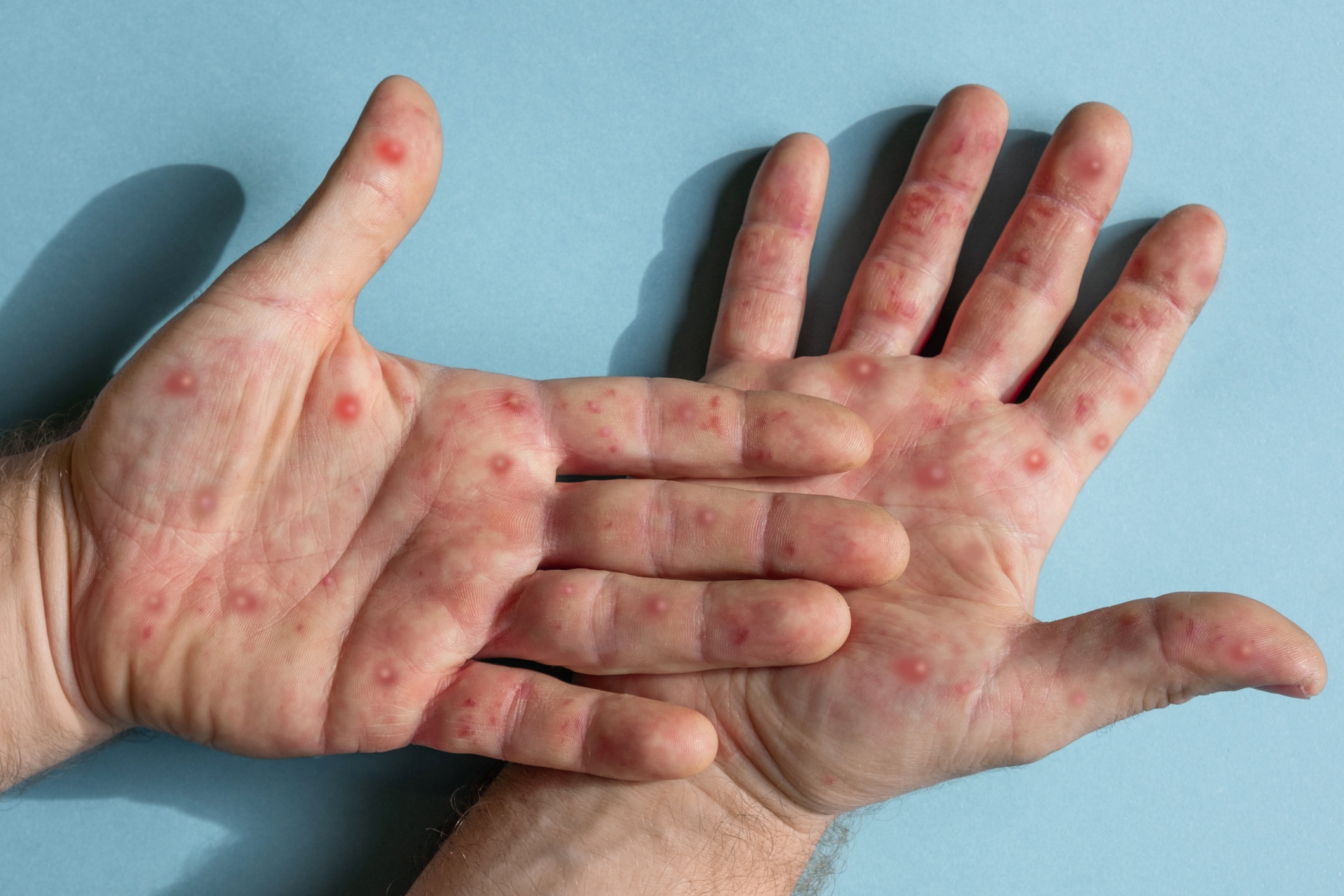ATLANTA, G.A, October 27, 2022 — Stop HIV Atlanta is a sex-positive and queer-centric non-profit delivering educational content and access to sexual health resources in metro Atlanta. Our monthly newsletter aims to inform queer, Black, and Brown folks in the city with progressive, non-judgmental sex education.
As the monkeypox epidemic calms down throughout the nation, it is important to remark that monkeypox is still prevalent in Atlanta’s queer communities. Monkeypox may affect vulnerable individuals within queer communities. Considering 1 in 2 black people who identify as gay males in metro Atlanta live with HIV, Stop HIV Atlanta wants to shed light on how an HIV diagnosis may affect a monkeypox infection. Inspired by the expertise and knowledge of Dr. David Folkes, MD. (he/him/his) from Thrives, read below to learn more about monkeypox and HIV.
Does Having an HIV Diagnosis Worsen Monkeypox Symptoms or Lead to Severe Illness?
Living with HIV does not increase the risk of contracting monkeypox, but persons who are not virally suppressed (undetectable) and have weakened immune systems may be at an increased risk of contracting monkeypox and developing severe disease—which is why people at the highest risk should get tested to know their status.
If you have an HIV diagnosis and a weakened immune system, this may worsen monkeypox symptoms or lead to severe illness. Individuals who are not undetectable may experience severe symptoms such as lesions that may become confluent and are more likely to develop complications such as encephalitis, pneumonia, and/or eye lesions that affect vision.
Although 40% of people diagnosed with monkeypox in the United States have HIV, there is currently no data to suggest that living with HIV with an undetectable viral load increases the risk of contracting monkeypox.
Do Some Monkeypox Treatments Interfere with HIV Treatment or PrEP?
According to the CDC, pre-exposure prophylaxis (PrEP) and HIV post-exposure prophylaxis (PEP) are still effective even if you have received the monkeypox vaccine, have monkeypox, or are taking monkeypox treatment.
TPOXX (tecovirimat) may increase or decrease the levels of some HIV drugs. It reduces the levels of some NNRTIs, such as doravirine and rilpivirine. While these change levels are noted, evidence is insufficient for everyone to consider dosage adjustments when on most HIV drugs. Patients using HIV medications should talk to their doctor when considering monkeypox treatment.
However, avoid using Cabenuva (a long-acting injectable HIV drug) until two weeks after using TPOXX.
Can People With HIV Receive the Monkeypox Vaccine?
Yes, if they are virally suppressed. Although there is concern over the viral load of the vaccine and how it can affect people, JYNNEOS™ is a live vaccine with an attenuated virus, so it cannot become infectious. However, the ACAM2000 vaccine is not recommended for those living with HIV due to the risk of adverse side effects, regardless of immune status.
Research demonstrates concerns in persons who may not have reached viral suppression because they may not develop an adequate immune response due to a weakened immune system.
Measures HIV-Positive Folks Can Take
The most important protective measure an HIV-positive person can take is to ensure they reach viral suppression by staying compliant with their medications. Viral suppression can help avoid adverse effects when contracting any infection. Other than achieving virus suppression, HIV-positive individuals can take harm reduction measures, communicate with their partners, and vaccinate if eligible.
According to AIDSVu, many gay and bisexual men of color experience challenges in maintaining viral suppression due to social disparities, including homelessness, stigma, and lack of mental and physical health care.
The Importance of Health Literacy
Equipping communities with the resources they need to care for themselves and understand their medical needs promotes health literacy. Health literacy promotes transparency to communities disproportionately affected by lack of proper care—due to stigma, lack of access, or any other reason—within the context in which people live. The ultimate goal of health literacy and StopHIV is to help folks make well-informed decisions regardless of their immigration status, race, gender, sexuality, or lifestyle.
About Stop HIV Atlanta:
Stop HIV Atlanta is a non-profit organization offering educational resources to prevent the propagation of HIV in disproportionately affected communities. We provide inclusive, zero-judgment information and resources to those seeking access to HIV services in Fulton, Gwinnett, DeKalb, and Cobb Counties. The testing, prevention (PrEP), and treatment resources we refer to interested parties are always confidential and secure. Learn more about our mission and services by visiting www.stophivatl.org or emailing us at [email protected].
